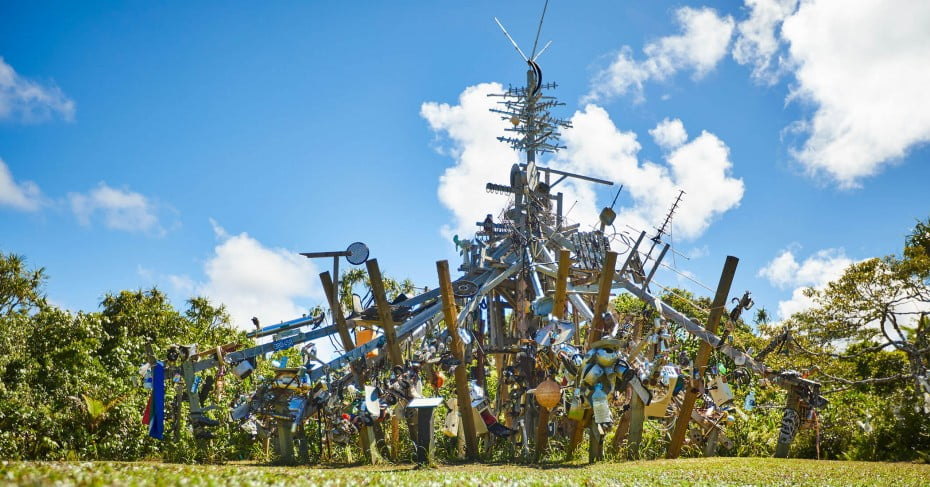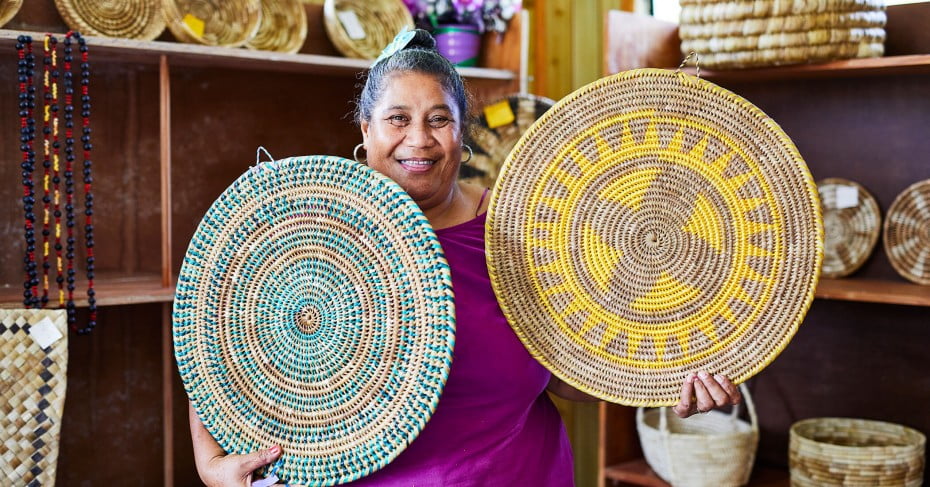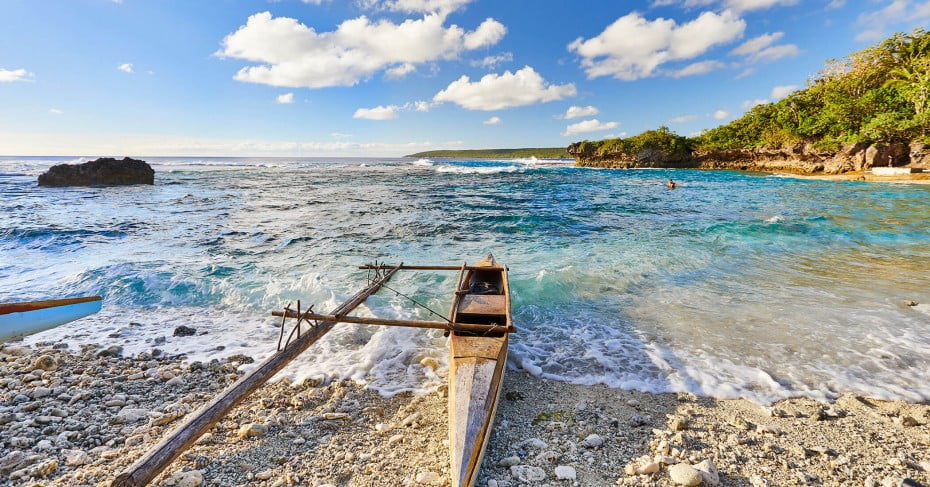Niue culture and art
Experience and learn about cultural traditions first hand, through the island's friendly people. Several small tour operators make it easy to visit villages, plantations and historic spots. While you're meeting the locals, you'll gain local knowledge on the best places to swim, snorkel, hike, eat and more.
If you're staying on a Wednesday, stop by the local women's weaving group at Makini Hall in Alofi.
Art and sculpture
Traditional Niuean art includes unique hiapo (tapa cloth) works that feature detailed plant designs. Traditionally the tapa cloth was patterned with designs unique to the island. Many patterns would depict events that were topical at the time. In recent years, hiapo art has been enjoying a revival. Current artist like renowned John Pule are using hiapo designs in modern works.
New Zealand born Mark Cross is another artist fond of using the hiapo art form. Mark moved to the island in 1978 and divides his time between studios in both countries. He is considered to be one of South Pacific's leading contemporary realist painters. You can visit the Tahiono Art Gallery in Alofi to enjoy some of his works. At the gallery, you will find other beautiful examples of modern art produced in Niue. It's a great opportunity to buy a gorgeous souvenir that you'll treasure for years to come.
In 1996, Mark Cross, John Pule and several other artists created Niue's Hikulagi Sculpture Park. It is located 2km south of Liku village. From the circle of totem poles to the gazebo of shells, pieces are largely constructed from found materials. These include fishing nets, footwear, saucepans, electrical components and scrabble letters. A highlight for many visitors is the constantly evolving piece called Protean Habitat. A meditation on how we use and consume.

Traditional Niuean weaving
Girls in Niue learn to weave from an early age and grow up to become accomplished weavers. They are able to produce beautiful practical items, such as placemats, bowls, baskets and hats. Some, like leading Pacific weaver Ahi Cross, have evolved traditional weaving techniques. They use their skills to create stunning works of art.
If you're in Niue midweek, stop by the local women's weaving group. The group meets every Wednesday morning at Makini Hall in Alofi and starts their session with a prayer. They then catch up on local news, while keeping their fingers busy with weaving and sewing. This thriving weaving group is keeping the Niuean art traditions alive. You can purchase the resulting handcrafted creations in the adjacent shop. There are baskets, brooms, placemats and tropical dresses on sale.
Traditional vaka
As you wander down Niue's sea tracks to the ocean you will pass small outrigger canoes or vaka. They're launched from coral reefs into the ocean swells and used by the locals for fishing. The ancient design, including the vaka's optimal length, has been perfected for local conditions.
The arrival of dinghies with outboards almost saw the end of the traditional vaka building. Today, there's renewed interest in their use and a handful of master carvers are creating new ones to order. Visitors can even book a traditional vaka fishing trip.
Young boys in Niue learn to carve while at school and creating a model vaka is a popular project for all. Some go on to further refine their talents. They create wonderful intricate vaka models and vaka-themed carvings for sale around the island.

Niue religion
Religion is an important part of Niuean society. About three-quarters of the population are associate with the Protestant Church of Niue. Church leaders provide both spiritual and civic leadership on the island. An interesting fact about Niuean culture is that several pre-Christian religious beliefs are still held. One of these is the belief in a spiritual world of dead ancestors and ghosts.
Sunday is a day of worship and rest for all. Visitors should respect the restful nature of Sundays in Niue. Some activities, such as fishing and boating, are prohibited. However, visitors can still enjoy other activities like sightseeing, swimming and snorkelling. Visiting a church service is recommended if only to experience the beautiful singing. You can check with your accommodation provider to see if your activity is appropriate on Sundays. You can also visit the information centre in Alofi. Shops and cafés are closed, except the Washaway Café at Avatele Beach, which only opens on Sundays.

Niue history and culture
The island has been inhabited for more than 1000 years. The first settlers are believed to have come from Samoa and Tonga, and a small group from the Cook Islands. When Captain Cook arrived in 1774, he made three attempts to land but was repelled by Niuean warriors on each occasion. Cook eventually moved on, naming the country Savage Island.
Niue though would have to be one of the friendliest countries in the world. It's four times the size of Rarotonga with a resident population of only 1,600. Niuean people are genuine, respectful and helpful and there's a real village feel to the island. Everyone waves as they pass each other on the road.
A range of easy-going cultural tours provides a great way to get a local perspective. You'll learn about life in Niuean villages, the cultural traditions and more. Long after returning home, you'll feel a closer connection to this one-of-a-kind Pacific paradise.